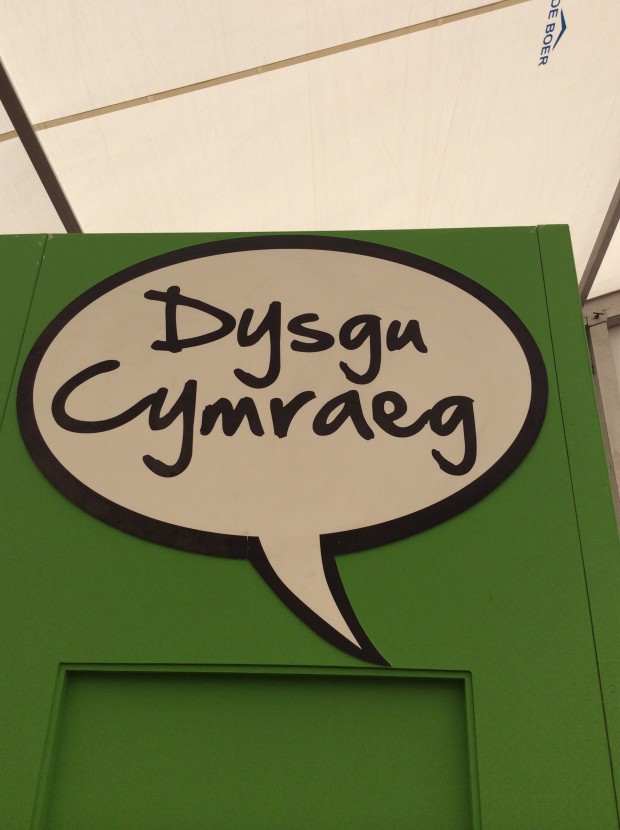When I first came to Wales I expected people to speak (or at least understand) Welsh, but I was surprised when I found how small the percentage of Welsh speakers is.
I come from a region of Spain that has many similarities with this country, as both have a minority language and a celtic past. But I didn’t imagine that the differences in the language reality would be as big as they actually are.
In my region, Galicia, literally everybody has the ability to speak and understand our language (Galician), in addition to Spanish. However, here in Wales only 20% of the population are able to speak Welsh, and that was a striking figure for me.
This week at the National Eisteddfod has given me a better insight into the Welsh language, as I got the opportunity to talk to very different people about this issue.
Most of them stressed the need to extend the presence of Welsh in the education system, and I certainly agree with that idea because I have seen how that has literally saved my language from dying. However, I am surprised that here in Wales there are some differentiated schools depending on their language of communication, as for me this can contribute to a negative segregation. From my own experience, I find having bilingual schools for everybody as a more effective measure, although the political context is obviously different in both countries.
I am aware that my language and Welsh are at very different stages. With Galician the challenge is now getting people to use it in their day to day life, as Spanish is increasingly regarded as a “better” or “trendier” language and is often associated with success. However, with Welsh the challenge seems to be getting people to know the language and being able to communicate through it.
That is why I think that festivals like the National Eisteddfod are needed to make people feel proud of their language and encourage others to learn it. But a bigger integration of the festival within the local community could be beneficial, making the Welsh language more visible to those not attending the Eisteddfod.
It is also difficult to strike the balance in this case, because in addition to encouraging non-Welsh speakers to join the celebration, it is also important to keep this as a Welsh speaking festival. In that respect, there has been a strong effort to offer simultaneous English translation in some events, but this also receives criticism because some people think that using them gives the idea that people don’t really need to learn Welsh.
I think that for this festival, and considering how small the Welsh speaking population still is, some translation is necessary to raise awareness among the non-Welsh speakers of how important is to keep the language alive.
This is always a difficult issue to deal with, as usually there are loads of prejudices behind language conflicts. Fighting for a future for minority languages like Galician or Welsh is not always easy, especially when you have to compete with powerful languages such as English or Spanish. The key may lie in a healthy coexistence where these small players also feel proud and confident enough to keep their languages and traditions alive. If we think about it, it would be terribly boring if we all spoke the same two or three languages; variety is the spice of life, so let’s keep it going.



Comment on this article